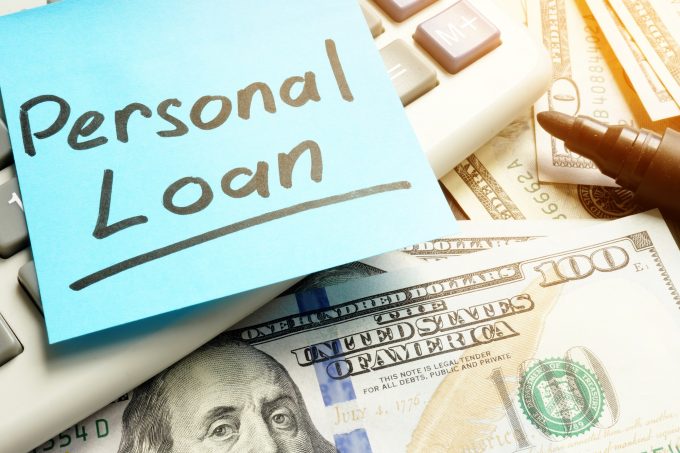Getting started in property investment doesn’t require a fortune. Savvy investors usually acquire real estate, putting no cash down on their own, financing the whole acquisition while still making a good profit.
Funds will always be a hurdle for beginner property investors, and you may fret that investing in real estate is impossible. Luckily, there are methods for investment property financing to help you kickstart your real estate investment journey, starting with;
1. Cash Financing

For most people, this kind of investment property financing may seem impossible since not everybody has access to substantial capital. However, this method is excellent for the fortunate ones who have cash lying around.
It’s simple and quick, and there are minimal complications. Additionally, you get several advantages like accepting many offers and hastening the purchase process. You can also negotiate lower prices, save on interest and increase your cash flow.
2. Conventional Bank Financing
You probably know conventional financing if you own a home. With this type of financing, the usual expectation for a deposit is 20% of the home’s buying price. However, for an investment property, the loan provider may need 30% of the funds as a deposit.
With conventional loans, your credit history and credit score determine your ability to get loan approval and the kind of interest rate on the mortgage. The loan providers will also look into your assets and income. You must prove that you can afford your existing mortgage and the monthly loan settlements on an investment property.
Lenders don’t include future rental income in the debt-to-income calculations (DTI). Most loan providers expect you to have a minimum of six months of money put aside to cover the mortgage obligations.
3. Drawing On Your Home Equity
You can fund your investment property by tapping into your home equity through a cash-out refinance, home equity line of credit (HELOC), or home equity loan. You can borrow up to 80% of your home equity value to fund an investment property’s purchase, repair, and renovation.
Using equity to fund your investment property has upsides and drawbacks depending on your loan type. With HELOC, you can borrow against your home equity using a credit card. The monthly payments are interest-only, and the rate is variable.
Cash-out finance comes with a fixed rate, which may prolong your existing mortgage life. A longer loan term means paying extra interest for your primary residence—weighed against the investment property’s expected returns.
4. Private Cash Loans

These are loans from one person to another. Private loans often come from an investor’s family or friend. If you don’t have family or friends who can lend you funds to buy an investment property, you can look for private cash lenders in local property investment networking events or join real estate investment clubs.
Private cash loan interest rates and loan terms differ significantly, from predatory to favourable, depending on your relationship with the lender.
This loan is secured by a legal contract that enables the loan provider to foreclose on a property if a borrower defaults on payments. Before acquiring a private loan from a loved one, consider how your relationship with them may sour if you fail to make payments.
You can always use your super to buy an investment property if push comes to shove. According to Joust, using superannuation to buy a property is possible for property investors, home buyers, and those who have reached retirement age.
5. Hard Cash Loans
This short-term loan is suitable mainly for flipping an investment property rather than purchasing and renting it out, developing it, or holding it.
Even though you can use this loan to buy an investment property and then instantly pay off the loan with a home equity loan, conventional loan, or a private loan, beginning with one of these options is more cost-effective and convenient if you don’t intend to flip the property.
The advantage of securing this loan to flip a house is that it’s easier to qualify for it than a conventional loan. While loan providers still consider factors like income and credit, they mainly focus on the property’s profitability.
The lenders use the property’s estimated after-repair value (ARV) to gauge if you’ll be able to pay off the loan. You can get the funding in a couple of days instead of waiting months or weeks for a conventional mortgage closing.
The main disadvantage of using fix-and-flip hard cash loans is that they are expensive. The interest rates can be up to 18%, depending on the loan provider, and the loan term may be short. The closing costs and origination fees are also higher than conventional financing, which may lower your return on investment.
6. Take an Asset-Based Mortgage

An Asset-Based Mortgage is a loan that uses the borrower’s assets as collateral. Real estate is the most common type of asset used in an Asset-Based Mortgage.
Asset-Based Mortgages are popular among property investors because they can be used to finance the purchase of a new property or refinance an existing property. By using Asset-Based Mortgages, property investors can leverage their assets to get the money they need to buy another property.
An asset-based mortgage is suitable for investors who:
- Have a lot of equity in their property
- Are looking to buy a property with a high loan-to-value ratio
- Want to refinance their property to free up cash for other investments
This is because an asset-based mortgage allows you to:
- Use your property equity as collateral for the loan
- Borrow up to 100% of the purchase price of the property
- Get a competitive interest rate on your loan
To take out an asset-based mortgage, you simply need to contact a mortgage broker and discuss your options. They will be able to assess your situation and find a loan that meets your needs.
Wrap Up
Funding an investment property is possible regardless of the amount of money you have at hand. Exploring any financing options above will help you get into real estate investment and maximize your profit as quickly as possible. Ensure you research and know all the particulars before taking out any loan to fund your investment property.
If you want more information on how to invest in an investment property, check out our comprehensive guide here.










